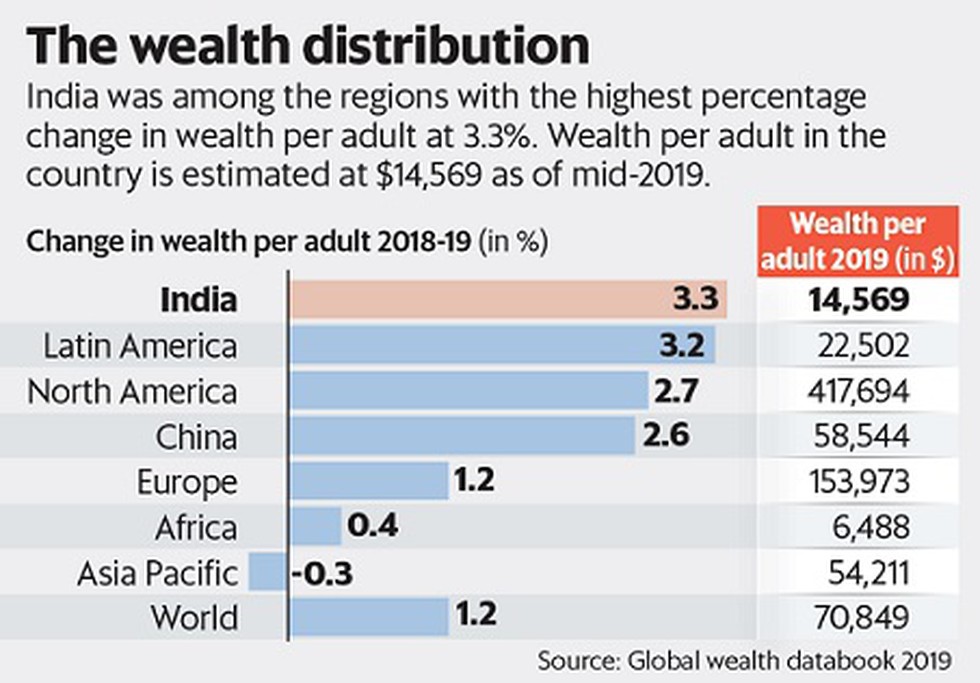About:
- The report tracks both the growth and distribution of wealth – in terms of the numbers of millionaires and billionaires and the proportion of wealth that they hold – as well as the status of inequality around the world.
- Wealth is defined in terms of “net worth” of an individual. This, in turn, is calculated by adding up the value of financial assets (such as money) and real assets (such as houses) and then subtracting any debts an individual may have.
Key findings of Credit Suisse's Global Wealth Report 2019:
- Just 47 million people – accounting for merely 0.9% of the world’s adult population – owned $158.3 trillion, which is almost 44% of the world’s total wealth.
- At the other end of the spectrum are 2.88 billion people – accounting for almost 57% of the world’s adult population – who owned just $6.3 trillion or 1.8% of the world’s wealth.
- China has overtaken the United States this year to become “the country with most people in the top 10% of global wealth distribution”.
- The report singles out India, along with China and Vietnam as the best examples of how wealth can be increased by pushing for higher economic growth.
